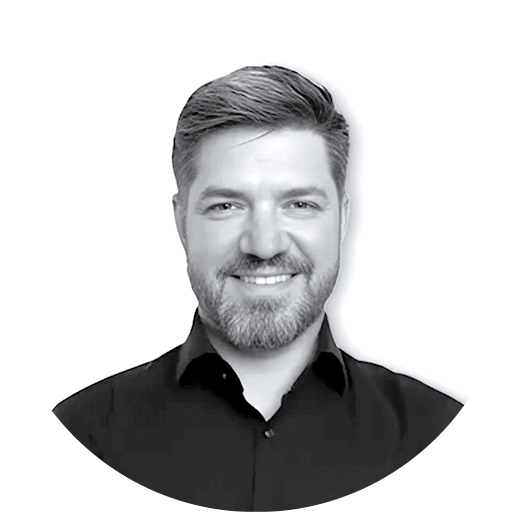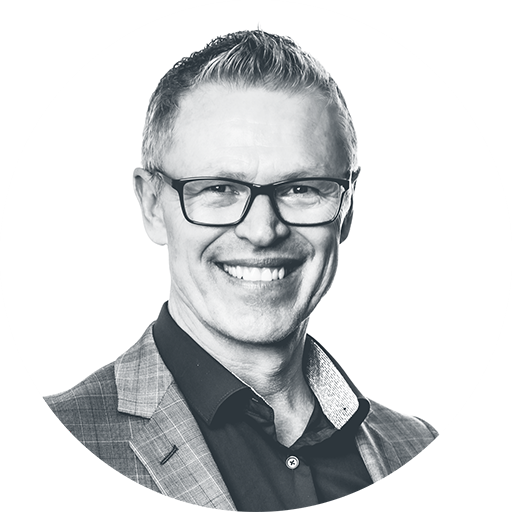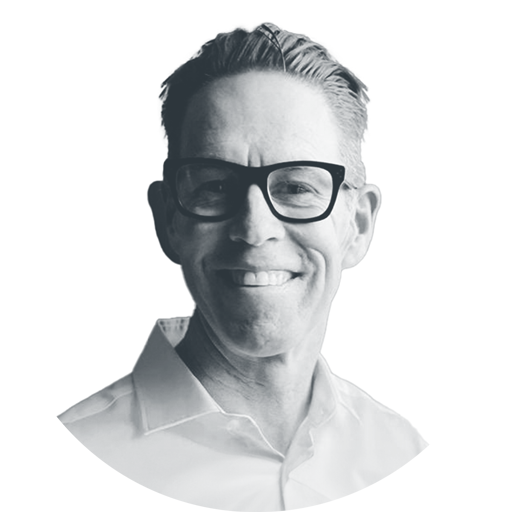Introduction
New Zealand sits on a $200Bn problem while competitors bank tomorrow's wins today. Perfect conditions don't exist - decisive action does.
The Top Line
New Zealand businesses face a critical paradox: whilst waiting for government to address a $200 billion infrastructure deficit, they're overlooking the fundamental lesson from Christchurch's post-earthquake transformation. The city proved that decisive action beats market conditions every time - yet nationally, we've fallen from 3rd to 33rd in global productivity rankings. Meanwhile, half the Fortune 500 companies from just 20 years ago no longer exist.
"It's a staggering statistic, right? Because these are phenomenally capable organisations. They are organisations that were full of brilliant, talented, hard-working people, and yet, in 20 years, they disappeared."
Craig Steel
They waited for certainty that never came. Today, your competitors aren't waiting for interest rates to drop - they're building the future whilst others deliberate.
Webinar Panel
-

Panel Host
Liam Dann
Business Editor at large, NZ Herald
-

Global Challenges, Local Impact
Jarrod Kerr
Chief Economist, Kiwibank
-

Reimagining Performance
Craig Steel
Founder & CEO, Vantaset
-

The Art + Culture of Winning
Darren Shand
Former All Blacks Manager & Founder, Winning Teams
The Takeaway
The core challenge isn't economic - it's cultural. New Zealand organisations have developed an unhelpful habit of seeking external validation before taking action. This creates a permission-seeking culture where every decision requires proof of safety, generating a paradox: the evidence leaders seek can only be created through the very actions they're reluctant to take.
Executive Summary
Half of the Fortune 500 dropped off the list in the last 20 years - not for lack of talent, but because they waited. New Zealand is sliding down the rankings even faster. Stuck at $42 an hour while Ireland races at $162. The gap isn't policy, it's mindset.
The Top Line
The 'Waiting Economy' - The Delay Is Costing You More Than Inflation
"50% of the world's Fortune 500 companies from only 20 years ago no longer exist"
"$200 billion infrastructure deficit" and "It takes 40 minutes to drive 10km in Auckland"
"Businesses are screaming for labor... but we haven't seen automation. That's the missing piece"
Key Findings
The Cost of Hesitation
- New Zealand fell from 3rd to 33rd place globally in productivity whilst businesses waited for ideal conditions
- Competitors aren't waiting for rate cuts - they're capturing market share now
Mindset Drives Performance
- Christchurch outperforms regions facing identical economic conditions
- Regional confidence operates independently of national policy settings
- Taking decisive action creates the conditions for success
Your Strategic Advantage
- The All Blacks delegate critical field decisions to players; most businesses require approval to change stationery suppliers
- Build cultures that transform ordinary talent into exceptional performance
- Shift from survival mode ("How do we endure?") to opportunity mode ("What could we achieve?")
The Global Context
- Ireland achieves $162/hour productivity versus New Zealand's $42/hour
- Leading economies use AI to amplify human capability, not replace it
- Infrastructure solutions are decades away - operational excellence cannot wait
The Strategic Imperative
High-performing organisations are building resilience through action, not waiting for economic recovery. The productivity reset begins when leadership chooses growth over defence, regardless of external conditions.
The Takeaway
Almost half of the Fortune 500 companies have dropped off the list since 2005 - not for lack of talent or effort, but because they were unable to adapt. Worryingly, New Zealand is sliding even faster, stuck at a $42/hour productivity rate, while Ireland races ahead at $162. The gap isn't policy, it's mindset. Christchurch proved resilience comes from action, not analysis, yet most businesses remain frozen in endless planning cycles, seeking assurance using 'systems of record' that only track the past instead of developing 'systems of engagement' that capture opportunities. While we manage dashboards and survival metrics, competitors are claiming the future.
The Wake-Up Call
Our productivity slide isn't just about roads, pipes, or rail, it's about culture. Too many firms are trapped in permission-seeking loops, waiting for proof before acting. Proof comes from action.
The Top Line
No One's Coming to Save Us - And That's the Opportunity
Where New Zealand Stands Right Now
Post-Recession Reality
- New Zealand is emerging from a policy-driven recession orchestrated by aggressive Reserve Bank intervention
- Business confidence remains fragile, with organisations hesitant about recovery timing
- Households face sustained cost-of-living pressures despite declining property values
- Consumer confidence has not returned, suppressing economic activity and consumption
- Economic 'green shoots' repeatedly emerge but fail to establish sustainable growth patterns
Infrastructure Deficit
- $200 billion infrastructure deficit accumulated across three decades
- Wellington infrastructure failing visibly, with water running down streets from burst pipes
- Auckland peak-hour journey: 40 minutes to travel 10 kilometres
- Per-capita infrastructure spending declined whilst population surged
- Chronic underinvestment in transport, digital, healthcare, education, and R&D infrastructure
Seven-Decade Decline: From Global Leader to Laggard
- 1950s position: 3rd globally in GDP per capita
- 2024 position: 33rd out of 37 OECD countries
- This represents one of the most dramatic relative declines of any developed economy
- R&D investment: 26th out of 37 OECD countries - a "capital shallow" economy
- Systematic under-investment in productivity-enhancing technology and automation
What This Means for Your Business
Your Operating Environment
Your business operates within structurally constrained economic conditions. Even during recovery, growth will cap at 2-3% before infrastructure bottlenecks trigger inflationary pressures. These constraints make productivity gains both more difficult to achieve and harder to sustain.
The Global Competitive Context
Your international counterparts operate within fundamentally different conditions: Irish businesses achieve $162/hour productivity, Danish firms $104/hour, Dutch companies $92/hour - all supported by world-class infrastructure and shorter working weeks.
New Zealand's measured productivity of $42/hour represents just 25% of Ireland's performance.
This gap reflects more than policy differences - it represents the fundamental operating environment constraining your business performance.
Your Strategic Response
Infrastructure investment cannot solve these problems within your planning horizons. The $200 billion deficit accumulated over 30 years and will require decades to address.
Your organisation must excel despite constraints, not because of favourable conditions.
The Competitive Opportunity
Most New Zealand businesses face identical constraints and are waiting for external improvements. Organisations that achieve excellence within current limitations will secure decisive competitive advantages when conditions eventually improve.
Individual business action cannot await systemic solutions - the infrastructure fixes lie decades in the future.
Challenging Conventional Wisdom And Thought
What The Data Reveals
- Christchurch/Otago/Southland are significantly more optimistic than Wellington/Waikato despite facing identical interest rates, currency conditions, and government policies
- Regional economic confidence varies independently of national economic conditions
- Countries that invested counter-cyclically during downturns (like Ireland after 2008) achieved higher productivity outcomes
- New Zealand's Reserve Bank was among the most aggressive globally with rate hikes, yet some regions maintained confidence while others didn't
- The 4-to-11 negativity multiplier shows bad news spreads faster than economic reality warrants
What The Data Reveals
- Countries leading in productivity (Netherlands $92/hour, Denmark $104/hour) have highest AI adoption rates alongside shorter work weeks, not higher unemployment
- New Zealand ranks 26th of 37 OECD countries in R&D spending, suggesting it's behind in AI integration rather than ahead
- The COVID labour shortage proved businesses can function with fewer people if forced to be more productive, yet New Zealand chose imported labour over automation
- Industries using AI extensively (finance, tech, research) show productivity gains that create new job categories rather than net job losses
What The Data Reveals
- Global economic center shifted from Europe/US to Asia - New Zealand is now closer to economic opportunity than historically
- Ireland ($162/hour productivity) and Norway ($162/hour) are geographically isolated but lead OECD productivity rankings
- Australia faces similar geographic challenges but ranked 21st vs New Zealand's 33rd in 2024 economic performance
- New Zealand was 3rd globally in GDP per capita during the 1950s when distance constraints were actually greater due to transportation technology
The Takeaway
Structural constraints become psychological prisons when organisations use them as reasons to delay action. The infrastructure deficit is real, but using it as justification for business mediocrity creates a double disadvantage, as we're operating in a constrained environment while also constraining our own potential. High-performing organisations treat limitations as challenges not excuses.
From Insight to Action
Change doesn't start with policy, it starts with one person deciding to be 1% better today. Small, compounding shifts across thousands of businesses add up to national impact.
The Top Line
One percent improvement across 100 people delivers transformational results.
What You Can Do Right Now
Your Organisation's Impact Starts Now
Begin Today, Not Tomorrow - When uncertain, execution trumps endless analysis.
- Don't wait for perfect conditions - they don't exist
- Don't wait for comprehensive enterprise-wide initiatives - they take time
- Identify small viable improvements - implement immediately
- Control what you can - let go of what you can’t
During uncertainty, execution trumps endless analysis...
Broadly Speaking
- Actions requiring no approval
- Actions requiring one conversation
- Actions to propose to leadership
"Have a forensic focus on what you control."
Craig Steel
I'm Just One Person - What Can I Do?
The productivity reset isn't about waiting for someone else to fix the economy. It starts with individuals deciding they won't accept mediocrity as inevitable.
Individual Contributors
- Start using AI tools - don't wait for 'policy'
- Be effective - not just efficient
- Take ownership of decisions rather than seeking permission first
- Share solutions rather than focusing on problems
- Measure your output by impact - not just hours worked
Small Business Owners
- Every week, focus on a single process - does it make us 'go faster'
- Grant a single team member authority - have them make decisions without checking with you
- Experiment with automation - for repetitive tasks
- Focus on one export opportunity rather than just serving the local market
- Invest in capability development during slow periods instead of cutting costs
Management
- Remove one approval step from your team's workflow
- Have honest conversations about what's actually blocking progress
- Protect your team from organisational anxiety while being transparent about challenges
- Distribute decision-making authority downward rather than hoarding it
- Model the confidence you want to see in your organization
The C-Suite
- Make one major strategic decision each quarter without waiting for 'perfect' market conditions
- Eliminate a layer of bureaucracy and compress decision-making chains
- Publicly commit to measurable outcomes - not just revenue targets but capability milestones
- Allocate budget for experimentation - treat innovation as infrastructure, not discretionary spending
- Replace monthly status meetings with quarterly strategy reviews - focus leadership time on future opportunities
- Champion one 'uncomfortable' initiative - the thing your industry says can't be done
The Takeaway
Most productivity initiatives fail because they focus on managing the process rather than embedding sustained behavioural changes across the organisation. Individual actions remain isolated improvements unless they're embedded in systems that reinforce new behaviours and challenge old assumptions. Greater success will require us to treat productivity as a cultural shift, not a task list, where new behaviours are practised, measured, and reinforced until they become hard-wired into our organisation's DNA.
Culture and Systems: Making it Stick
Inspiration fades unless systems lock new behaviours in place. Real transformation happens when leaders wire culture, measures, and rewards to make productivity automatic, not aspirational.
The Top Line
Changing metrics tweaks the score. Changing rules changes outcomes.
The Bigger Picture
New Zealand’s future isn’t just about roads and rails - it’s about people. The next generation is watching closely, deciding whether this is a country worth staying for, returning to, and building upon.
The Youngsters Worried About Their Future
A generation of young New Zealanders is looking at house prices they can't afford, climate challenges they didn't create, and an economy that fell from 3rd to 37th globally during their parents' lifetime. They're not asking for guarantees - they're asking for evidence that someone's building something worth inheriting.
The webinar revealed that regional confidence varies dramatically despite identical economic conditions. Christchurch rebuilds while Wellington waits. The difference isn't policy - it's psychology. Young people can sense when a community has decided to create rather than just cope.
Building for Those Who'll Come Back from Overseas
Every year, thousands of talented Kiwis leave to experience the world. The question isn't whether they'll go - it's whether they'll want to return. They'll come back not because it's time to have babies, but because New Zealand represents opportunity, not just comfort.
"At some point in time, we're going to want them to come back, not just because it's time to come home, but actually come home because they believe in the country and what it stands for as an opportunity."
Craig Steel
This requires businesses that compete globally, not just locally. It means creating an economy where excellence is rewarded, not just survival.
The AI Opportunity for Focusing on EQ Not Just IQ
AI should take care of IQ tasks - data, admin, processing et al - so people can focus on what only humans can do: lead, build culture, and think strategically. Yet New Zealand ranks just 26th of 37 OECD nations in R&D spending, lagging in the very technologies that could free us to be more human at work.
As Darren Shand put it, AI gives us "more time to focus on us as humans - how we lead, how we work, how we show up." The countries pulling ahead aren't using AI to replace people but to unleash them. New Zealand doesn't need perfect conditions to act, just the will to turn our deficits into opportunities and build the economy young people want to inherit, and global Kiwis want to return to.
The Takeaway
The critical error is believing organisational change occurs through individual inspiration rather than systemetised cultural advancement. When leaders focus solely on motivating better performance without redesigning the structures, processes, and incentives to underpin the desired behaviours, improvements remain ephemeral and unleverageable. Sustained transformation requires leaders to align their systems, reward structures, and recognition programmes with their intent, whilst eliminating organisational friction that makes productivity improvements impossible.
Resources
The data and insights are here to rewatch, rethink, and rebuild. Productivity isn't a theory problem - it's a practice problem, solved by building systems that turn knowledge into sustained advantage.
Wisdom You May Have Missed
Key Strategic Insights
- This recession resulted from deliberate policy intervention, not market failure
- New Zealand declined from 3rd to 33rd globally in GDP per capita since the 1950s
- Geographic isolation now represents proximity to Asia's growing economic centre
- Regional confidence varies dramatically despite identical economic policy settings
- Executive leadership experiences the same economic pressures as their workforce
- 50% of Fortune 500 companies vanished between 2000-2020
- COVID revealed New Zealand's dependence on imported labour versus automation
- Employment is a business byproduct, not business's primary purpose
- $200 billion infrastructure deficit represents capital expenditure, not operational challenges
- Negative news spreads to 11 people; positive news reaches only 4
- AI should augment human emotional intelligence, not replace cognitive capability
- Sports analogies mislead because businesses operate in deterministic, not probabilistic environments
- The 4-to-11 negativity multiplier explains why pessimism outpaces economic reality
- Most New Zealand organisations significantly underutilise existing internal potential
The Transcript
Wait - a transcript? I've watched the video - why do I need a transcript?
Well for one thing, we've highlighted quite a lot of points being made that you might find interesting, or - heaven forbid - missed! Not only that, but the whole thing is a downloadable pdf that you can search to find those bits that you need - without having to hunt through the whole video.
The Whitepaper
Transforming Businesses Globally
The white paper unpacks why old management practices are failing and how leaders can reset their organisation’s performance in a world of disruption. The key is Performance-OS™, the high-performance operating system for building organisations that stay aligned, motivated, and ready for what’s next..
The Takeaway
Information consumption without behavioural transformation represents the ultimate productivity trap - creating an illusion of progress while in truth, remaining the same. Organisations collect insights, attend briefings, and develop strategies, yet fail to establish accountability structures and measurement systems that convert knowledge into enduring advantage. Value lies not in understanding high-performance practices, but in embedding systematic improvements that are applied across every level of the organisation thereby lifting its productivity and competitiveness.
What's Next?
Thank you for dropping by. Please share your contact information with any relevant notes on what you would like to talk about and we will get right back to you.